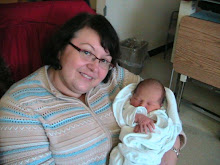This morning as I was driving into work I started to think about the connection between the words
courage and
discourage. I looked them both up on
http://www.askoxford.com/?view=uk and here are the definitions given:
discourage
• verb 1 cause a loss of confidence or enthusiasm in. 2 prevent or try to prevent by showing disapproval or creating difficulties. 3 (discourage from) persuade (someone) against (an action).
courage
• noun 1 the ability to do something that frightens one. 2 strength in the face of pain or grief.
So many of the people I come across on a daily basis identify themselves as being discouraged. They are discouraged by the economic times, by overwhelming bad news, by everyday difficulties in their lives, even (and maybe more especially) by the happenings within the Church. Sometimes it is difficult to see any hope in a world full of discouragement.
This is where courage comes into play. Courage is that ability to continue on, even when one is overwhelmed by circumstances. Courage is that deep abiding strength and calm that bubbles up in the midst of distress and anguish. Fear is a powerful master and is not easily overcome. Fear breeds those twins anger and discouragement. People don't often see the connection, but anger can sometimes be the means of masking our deep fear. And the only way to overcome this anger, is to be courageous in the face of fear.
I am strengthened the numerous "fear nots" of the gospels, from the cry of the angels in the birth narratives in beginning of Luke to the comforting words of the angels in the post resurrection passages of Matthew. Courage in the face of fear is not only possible, it is witness of the good news.
It is that kind of courage that will help us to reimag(in)e this world. It is that courage that will help us see the lies that are often implicit in fear. Because we can overcome. We can make a difference. We can create a more just world. We can make our dreams come true. It doesn't have to be this way. It will not always be this way. Fear not - be courageous.

